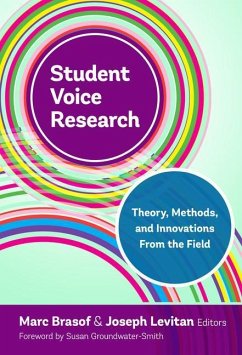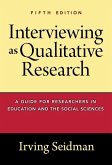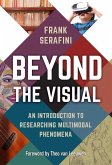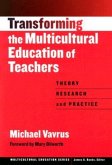This powerful resource is for researchers and educational leaders who are interested in understanding and applying research methods that emphasize youth voice. The authors argue that most educational research either omits critical understandings of youth or, even worse, presents inaccuracies due to faulty techniques. Researching how youth experience their schools and communities requires specific conceptual tools that address researcher bias, power dynamics, and the contextual considerations that impact meaning-making processes. Responding to these issues, the authors present the Student Voice Research Framework--an approach that both novice and advanced researchers can use to address assumptions and overcome bias as they engage with youth. Readers are provided with clear steps for implementing the framework, as well as examples of how some of the most innovative qualitative and quantitative researchers in the world are using it. The text includes numerous interview, survey, and other protocols with strategies that researchers can use immediately or adapt for their own studies. This comprehensive volume is a must-have for anyone doing research about and with youth. Book Features: * Guidance for addressing persistent problems of bias in educational inquiry to better engage in study about and with students. * Examination of student voice research as its own field with its own typologies and research questions. * Chapters highlighting innovative qualitative and quantitative research methods and strategies with ready-to-use protocols and other tools. * A forward-looking conversation about social justice and what democracy could look like in schools. * A toolkit of research methods and school change processes to address difficult questions in education.








